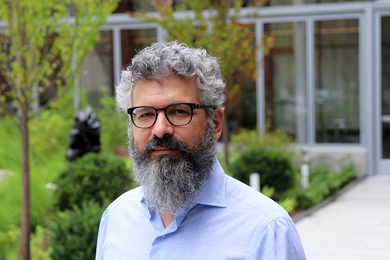The Broad Institute of MIT and Harvard has announced an award of nearly $200 million from the National Human Genome Research Institute (NHGRI) to support applications and enhancements of large-scale DNA sequencing for biomedicine. Over the next four years, the grant will fund a wide range of biomedical projects, including efforts to understand the genetic basis of cancer and other complex human diseases, to dissect the regulation of the human genome based on comparisons with genomes of other mammals, and to decode and analyze the genomes of key microbes.
The NHGRI grant will also support work aimed at developing and implementing a new generation of DNA sequencing technologies with the potential to dramatically increase throughput and decrease cost.
"DNA sequencing is an increasingly powerful tool for biomedical discovery. It is now transforming biology and medicine by shedding light on such diverse problems as cancer, infectious disease, metabolic disease, gene regulation and evolution," said Eric Lander, principal investigator of the grant and the director of the Broad Institute.
One important area of work will be the identification of genes responsible for human diseases. Toward this end, the grant will fund genomic sequencing under The Cancer Genome Atlas (TCGA) Pilot Project, a joint project between NHGRI and the National Cancer Institute aimed at identifying the mutations that underlie different cancers. The grant will also support other genomic sequencing efforts to reveal the genetic variations that contribute to certain inherited diseases.
Sequencing our animal friends
Another major area of research will be comparative studies that use evolutionary information to decipher the human genome. By sequencing the genomes of several mammals, such as the mouse, dog, horse, elephant, guinea pig and others, and then comparing them to the human genome, researchers can pinpoint the DNA sequences that have been most highly conserved across millions of years of evolution. These regions highlight crucial biological functions within the human genome.
A third key area will be genomic studies to probe the genetic machinery of important microscopic organisms, including fungi, bacteria and viruses.
Finally, the NHGRI will also support work aimed at dramatically increasing the speed and reducing the cost of large-scale DNA sequencing. The Broad Institute is developing new laboratory and computational methods for DNA sequencing and is collaborating with companies to develop next-generation DNA sequence detectors.
The grant was awarded through a competitive, peer-reviewed process. The other two institutions to receive grants under this program are the Washington University School of Medicine and the Baylor College of Medicine. The Broad Institute award reflects renewed funding of an earlier large-scale sequencing grant from the NHGRI in 2003.
A version of this article appeared in MIT Tech Talk on December 6, 2006 (download PDF).






